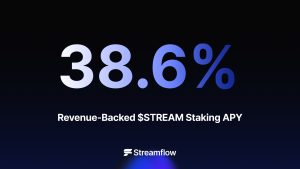Trading with a small account can be both difficult and worthwhile. Even if the restrictions of a small account could appear overwhelming, you can still get steady profits and expand your account over time with the correct techniques and mindset. With an eye toward fundamental characteristics like price action, risk management, and trading techniques that can help you succeed, this article will investigate the salient features of trading with a small account.

Easy Guide to Price Action
Price action is one of the most important factors of trading, particularly with a small account. Unlike other trading strategies mostly dependent on indicators, price action emphasizes studying the actual movement of prices in the market. Studying price movement trends and patterns helps traders decide when to start or stop a trade more wisely.
Price movement is constructive for small account traders since it eliminates the need for costly instruments or sophisticated programs. Rather, you should depend on basic charts and your capacity for price movement interpretation. Profitable trading depends on a better awareness of market behavior, which you may acquire by mastering price action.
Effective Risk Management
Successful trading depends mostly on risk management; hence, it becomes even more impactful when trading from a small account. You cannot afford to suffer large losses with low funds since they rapidly empty your account. Following a strong risk management strategy can help you safeguard your funds and guarantee that you remain in the game over the long run.
Limiting the funds you risk on any trade is one of the most successful risk management techniques. Usually speaking, you should risk no more than 1-2% of your trading account on one trade. This method lets you resist losing streaks without destroying your account. Use stop-loss orders to guard your capital and control possible losses.
Penalty patience is another idea that underlies risk management. It speaks of the discipline of waiting for the proper trading prospects instead of making hasty decisions in trading. Being selective and patient can help you prevent missed trades and lower your chance of unneeded losses.
Utilizing a Micro Account
For traders with thin funds, a micro account is the best choice. Micro accounts let you trade with smaller position sizes, helping you control risk and keep under your capital limitations. Usually requiring a smaller minimum investment, these accounts are open to traders who are just starting or those wishing to test their ideas without running a major risk.
Using a micro account also lets you hone your trading techniques in a real market setting. Even if the gains can be less than in conventional accounts, the experience and confidence you acquire will be priceless as you advance in your trading path.
Developing Effective Trading Strategies
Trading with a small account requires a well-defined trading plan that fits your risk tolerance and financial objectives. A trading plan is a collection of instructions and rules on when and how to enter and leave deals. It should be grounded on careful study and evaluated under several market environments.
The price action technique is one often used approach by small account traders. Price action, as was already discussed, is the study of price fluctuations guided by trends and patterns that determine trading actions. Since this approach may be used on any financial market and does not call for costly tools or software, small account traders will find it very successful.
As mentioned, risk management is another crucial component of a good trading plan. Your plan should call for guidelines on position sizing, stop-loss order setting, and profit taking. Even with a small account, a disciplined strategy helps you to limit losses and optimize returns.
Avoiding Missed Trades
Particularly when they arise from uncertainty or doubt about your trading approach, missed trades can be annoying. One must realize, though, that missing a trade is not the end of the world. Actually, avoiding impulsive trades is often wiser than entering the market without a well-defined strategy.
Staying consistent and attentive in executing your trading plan helps you prevent missed trades. if your approach indicates a trade possibility, grab it without a second thought. On the other hand, should the circumstances contradict your approach, passing on the deal instead of imposing it would be advisable.
Additionally, it is crucial to control your expectations and avoid overtrading. Every trade counts with a small account; overtrading might cause unneeded losses. Follow your plan and concentrate more on quality deals than on volume.
The Importance of Patience
According to the mentor at 55Brokers, Chris Ayden, patience is a virtue in trading; in small account handling, it is especially crucial. Penalties patience emphasizes waiting for the proper trading opportunities rather than rashly entering the market. Being patient helps you to make better selections and prevent unwarranted hazards.
Patience also encompasses the account growing process. Given a small account, overnight success is improbable. Rather, concentrate on constant, slow increase across time. Following your plan and controlling your risk will help you to increase your account and meet your financial targets progressively.
Conclusion
Although trading with a small account comes with difficulties, with the correct strategy, one can consistently succeed. You may confidently negotiate the financial markets by emphasizing price action, applying good risk management, employing a micro account, and creating a strong trading plan. Furthermore, you can raise your chances of success and progressively expand your account by avoiding missed transactions and developing patience. Recall that trading is a marathon rather than a sprint, so, dedication and endurance will help you to reach your trading objectives.
| Disclaimer: The text above is an advertorial article that is not part of Coincu.com editorial content. |























